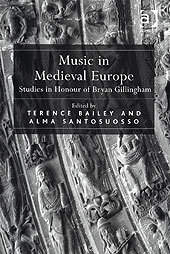Music in Medieval Europe Studies in Honour of Bryan Gillingham
Auteur : Santosuosso Alma
Coordonnateur : Bailey Terence

Date de parution : 01-2007
15.6x23.4 cm
Date de parution : 10-2016
15.6x23.4 cm
Thème de Music in Medieval Europe :
Mots-clés :
Expositio Evangelii Secundum Lucam; bnf; Terribilis Est Locus Iste; lat; Vice Versa; Ll Dobszay; Dialogus De Musica; Jane Morlet Hardie; Hermannus Contractus; Ruth Steiner; Antiphonale Missarum Sextuplex; John Caldwell; Gloria Patri; Barbara Haggh; Liber Politicus; Michel Huglo; Magnificat Antiphons; Theodore Karp; Innocent Iii; William John Summers; Dominus Deus; Rebecca A; Baltzer; Introit Trope; James John Boyce O; Carm; Gregorian Repertory; Dolores Pesce; Puer Natus; David Hughes; Twelfth Century Antiphoner; James Borders; Gregorian Chant; Joseph Dyer; Chant Repertories; Thomas B; Payne; Octave Species; Philip Weller; Double Offices; Terence Bailey; St Jean De; Andrew Hughes; Guido's Micrologus; Alejandro Enrique Planchart; Salamanca Cathedral; David Hiley; Dominator Domine; Pontificale Romanum; Disjunct Tetrachords



